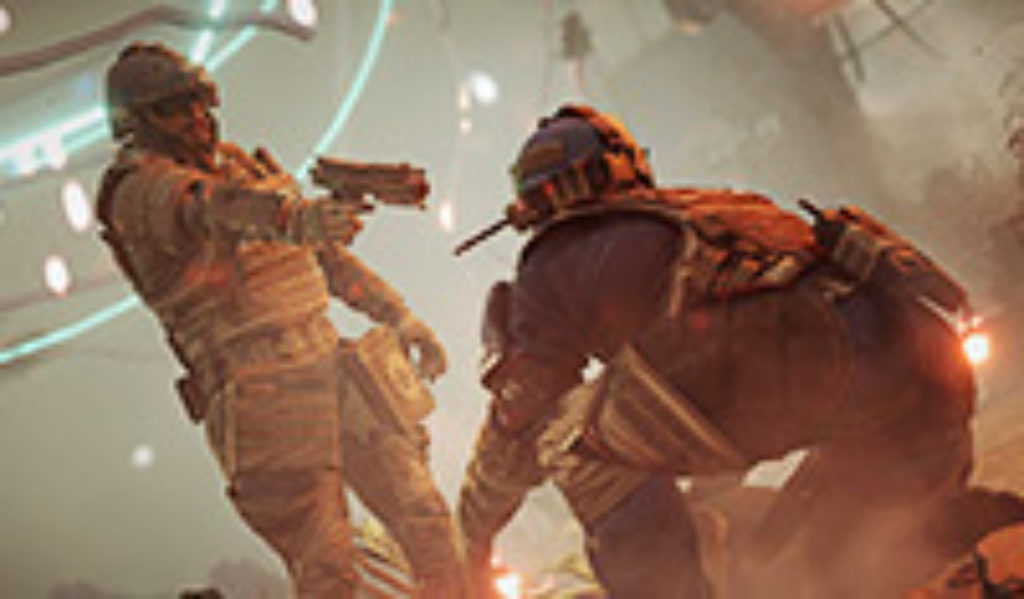
It’s not just loads of vivid visuals, cinematic-style action and tight button-thumping mechanics that are getting crammed into new video game titles these days. We’re also seeing moral questions and choices inserted into the dramatic mix. And Guerilla Games wants to prove that even a first-person shooter can get in on the trend. But can the studio behind Killzone: Shadow Fall really pull it off?
What’s Fair in Love and War? (OK. Maybe Just War.)
Developed initially as something of a hard M-rated answer to the popular Halo games on the Xbox console, PlayStation’s Killzone series has followed the ongoing intergalactic conflict between the Nazi-like Helghast Empire and the seemingly put-upon good guys from the planet Vekta. In most recent games, players have worked their way through the missions of a typical, bestubbled, hard-as-nails soldier and his crew as they’ve taken the fight to the evil empire on its native soil.
This time around, though, everything’s changed. It’s 30 years after the end of Killzone 3, a game that witnessed our “heroes” dropping a petrusite bomb on the planet of Helghan, wiping out the world and killing over a billion Helghast in the process. In the aftermath, an uneasy truce is formed. And the Vektans even decide to allow the surviving enemy citizens to come live on their thriving world—giving them a big chunk of the planet to populate but building a massive wall to keep their two species apart.
Everyone lived in peace and harmony.
Well, not quite. Reminiscent of real-world wall-separated civs, it seems these guys just can’t seem to get along. The deadly conflicts begin again soon after the Helghast move in. This time though, the ways of war aren’t so black and white.
Gamers play as a secret agent-like Vektan Shadow Marshal named Lucas, who’s sent beyond the wall in order to find ways to protect his people from the Helghan evil. There, he unearths plans for a weapon of mass destruction, but he also discovers genocidal plans being hatched on his side of the wall. And he realizes that the Helghast aren’t all one-dimensional hateful monsters. Most, in fact, are oppressed people simply trying to survive and care for kith and kin.
So what does a good guy do, the game asks, when faced with foul choices and less-than-upright leaders on both sides of the divide? What does a man or woman of courage do when people are suffering?
Death, Only Death
Unfortunately, for all of those multifaceted questions and the game’s occasional proffering of heroic choices—made by Lucas and a female Helghast counterpart—the end result is fairly one-dimensional and hardwired in. The box cover may ask, “What will you sacrifice for peace?” But the answer seems to be clean hands. Because pretty much all you do here is kill.
Players spend the majority of the game gunning down, stabbing, slicing and/or snapping the necks of scores and scores of foes. Blood spurts, spatters and pools when shotgun, machine gun and rocket launcher projectiles strike home. We see torture delivered by an electric cattle prod, a guy getting a knife to the face and execution-style point-blank head shots. The camera gets up close and personal to better remember the slit throats and blade-buried-in-flesh melee mauls.
Between those deadly activities and the game’s betrayal, murder and scattered foul language use (including misuses of God’s and Jesus’ names, and crudities such as the s-word, “d‑‑n,” “h‑‑‑” and “b‑‑ch”), the story’s outcome is downright dark. It’s a much bleaker, despairing and unavoidable conclusion than those hopeful moral queries seem to promise.

After spending more than two decades touring, directing, writing and producing for Christian theater and radio (most recently for Adventures in Odyssey, which he still contributes to), Bob joined the Plugged In staff to help us focus more heavily on video games. He is also one of our primary movie reviewers.